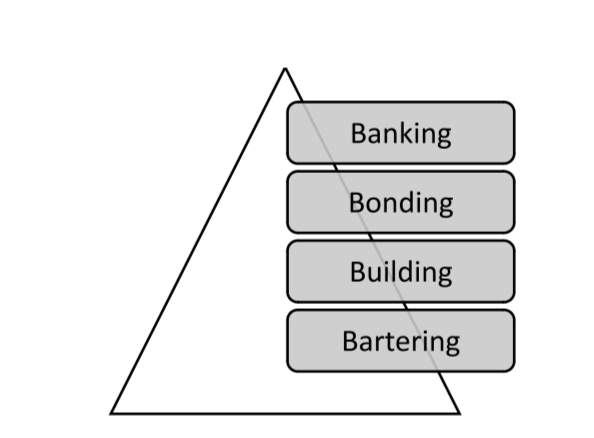Abstract
This research aimed to explicate the extent to which parents engage in the practice of intellectual stimulation for their children, conceptualized as an illustration of transformational leadership, employing a descriptive analytical methodology where an instrument was developed to assess the progression of transformational leadership levels in parenting, encompassing the Bartering, Building, Bonding, and Banking approches. This instrument was administered randomly to a cohort of (701) parents whose children are enrolled in primary education within the city of Jeddah in Saudi Arabia. The findings indicate that the degree of parental practices of intellectual stimulation is remarkably elevated, suggesting a high level of Banking in transformational leadership, with an arithmetic mean of (6.16 out of 7). Furthermore, the investigation disclosed statistically significant discrepancies dependent upon the gender of the child and the educational level of the parents. The study promotes for the execution of additional quantitative and qualitative research to reveal the perspectives of children and compare them with those of their parents, alongside recommending the enhancement of reflection practices among both parents and children through tailored training programs.
Research ID
Citation Generator
Cite This Research Manuscript
Figures


References (APA)
- Akhter, N., Noor, A. E., & Iqbal, S. (2020). The influence of parental authoritative styles on the personality characteristics of children: An empirical investigation among elementary school students in Pakistan. Journal of Elementary Education, 38(29), 37–50. https://pu.edu.pk/images/journal/JEE/PDF/3_v29_2_19.pdf
- Bolkan, S., & Goodboy, A. K. (2010). Transformational leadership in the classroom: The development and validation of the student intellectual stimulation scale. Communication Reports, 23(2), 91–105. https://doi.org/10.1080/08934215.2010.511399
- Dabke, D. (2014). The influence of parental emotional intelligence and perceived leadership behaviors of parents on satisfaction with parenting. Journal of Indian Association for Child & Adolescent Mental Health, 10(1), 9–30. https://doi.org/10.1177/0973134220140102
- Ferguson, E., Hagaman, J., Grice, J., & Peng, K. (2006). From leadership to parenthood: The applicability of leadership styles to parenting styles. Group Dynamics: Theory, Research, and Practice, 10(1), 43–55. https://doi.org/10.1037/1089-2699.10.1.43
- Galbraith, K. (2000). Family leadership: Constructing and testing a theoretical model of family well-being [Doctoral dissertation, Utah State University]. All Graduate Theses and Dissertations. https://doi.org/10.26076/a956-5894
- Gartzia, L. (2023). The beneficial impact of nurturing: Circumstances and mechanisms through which parenting enhances leadership capabilities. Journal of Organizational Behavior, 45, 643–662. https://doi.org/10.1177/0973134220140102
- Goodall, J., & Montgomery, C. (2023). Transitioning from parental involvement to parental engagement: A continuum. In Mapping the field (pp. 158–169). Routledge.
- Jankowska, D. M., & Gralewski, J. (2020). The familial context of children’s creativity: Parenting styles and the climate for creativity in the parent-child relationship. Horyzonty Wychowania, 19(49), 41–51. https://doi.org/10.35516/hum.v49i3.1370
- Kong, C., & Yasmin, F. (2022). The influence of parenting styles on early childhood educational outcomes: The mediating effect of parental self-efficacy. Frontiers in Psychology, 13, Article 928629. https://doi.org/10.3389/fpsyg.2022.928629
- Lee, C., & Kim, S. (2023). The effects of preschool children’s play behavior, temperament, and parenting styles on the creativity of preschool children. Chang-Uilyeog Gyo-Yug Yeon-Gu, 23(4), 1–19. https://doi.org/10.36358/jce.2023.23.4.19
- Liu, M., & Guo, F. (2010). An examination of parenting methodologies and their significance in relation to child behavioral outcomes in the contexts of Canada and China. Scandinavian Journal of Psychology, 51(2), 109–114. https://doi.org/10.1111/j.1467-9450.2009.00795.x
- Morton, K. L., Barling, J., Rhodes, R. E., Mâsse, L. C., Zumbo, B. D., & Beauchamp, M. R. (2010). Extending transformational leadership theory to parenting and adolescent health behaviours: An integrative and theoretical review. Health Psychology Review, 4(2), 128–157. https://doi.org/10.1080/17437191003717489
- Murtedjo, A., & Suharningsih, E. (2017). The pivotal function of educational leadership in enhancing the scholastic environment within elementary institutions. IOP Conference Series: Journal of Physics, 953, Article 012179. https://doi.org/10.1088/1742-6596/953/1/012179
- Pinquart, M., & Gerke, D.-C. (2019). The correlations between various parenting styles and self-esteem levels in children and adolescents: A comprehensive meta-analysis. Journal of Child and Family Studies, 28, 2217–2237. https://doi.org/10.1007/s10826-019-01417-5
- Popper, M., & Mayseless, O. (2003). Back to basics: Applying a parenting perspective to transformational leadership. The Leadership Quarterly, 14(1), 41–65. https://doi.org/10.1016/S1048-9843(02)00183-2
- Rinaldi, C. M., & Howe, N. (2012). An examination of the parenting styles of mothers and fathers and their correlations with toddlers’ externalizing, internalizing, and adaptive behaviors. Early Childhood Research Quarterly, 27(2), 221–231. https://doi.org/10.1016/j.ecresq.2011.08.001
- Sanchez-Cardona, I., Salanova, M., & Llorens-Gumbau, S. (2018). Leadership intellectual stimulation and team learning: The mediating role of team positive affect. Universitas Psychologica, 17(1), 1–16. https://doi.org/10.11144/Javeriana.upsy17-1.list
- Singh, S. (2017). Project management and strategic objectives of the organization. Universal Journal of Industrial and Business Management, 5(1), 10–11. https://doi.org/10.13189/ujibm.2017.050102
- Subandi, S., Choirudin, C., Mispani, M., & Wahyudi, A. (2022). The influence of leadership style of school principals and the educational environment on teacher performance and its implications for school effectiveness. Jurnal Paedagogy, 9(4), 1017–1028. https://doi.org/10.33394/jp.v9i4.5684
- Wilder, S. (2014). The impact of parental engagement on scholarly performance: A meta-synthesis. Educational Review, 66(3), 377–397. https://doi.org/10.1080/00131911.2013.780009
- Zhao, J., Kong, F., & Wang, Y. (2012). The constructs of self-esteem and humor style function as mediators in the relationship between shyness and loneliness among Chinese university students. Personality and Individual Differences, 52(5), 686–690. https://doi.org/10.1016/j.paid.2011.12.024
- Zhao, X., & Yang, J. (2021). Fostering creative thinking in the family: The importance of parenting styles. Thinking Skills and Creativity, 41, Article 100920. https://doi.org/10.1016/j.tsc.2021.100920


